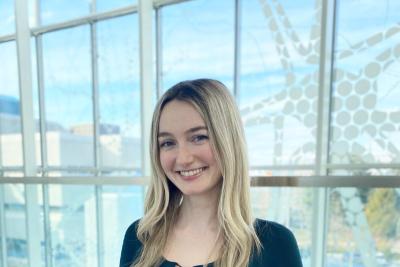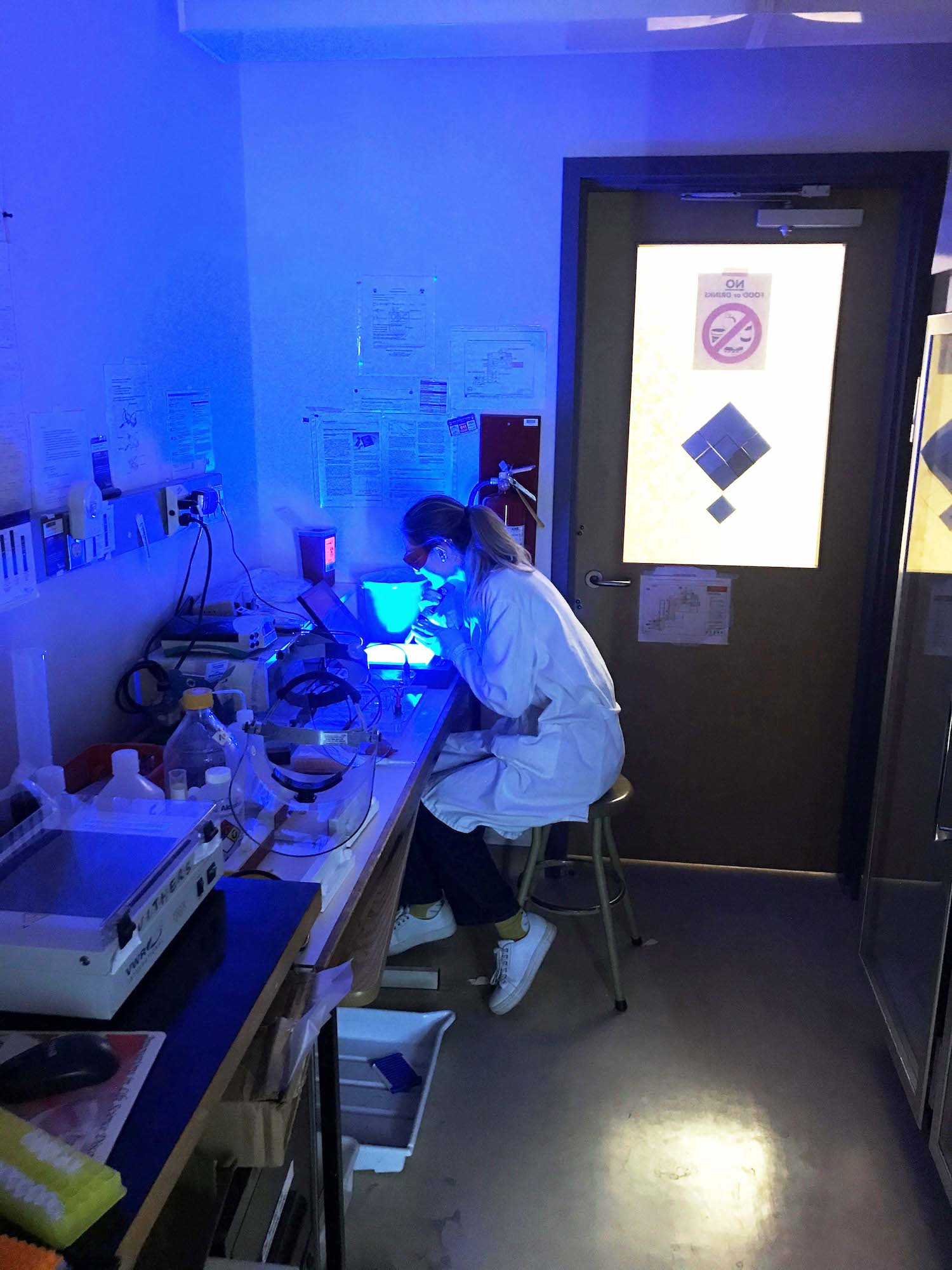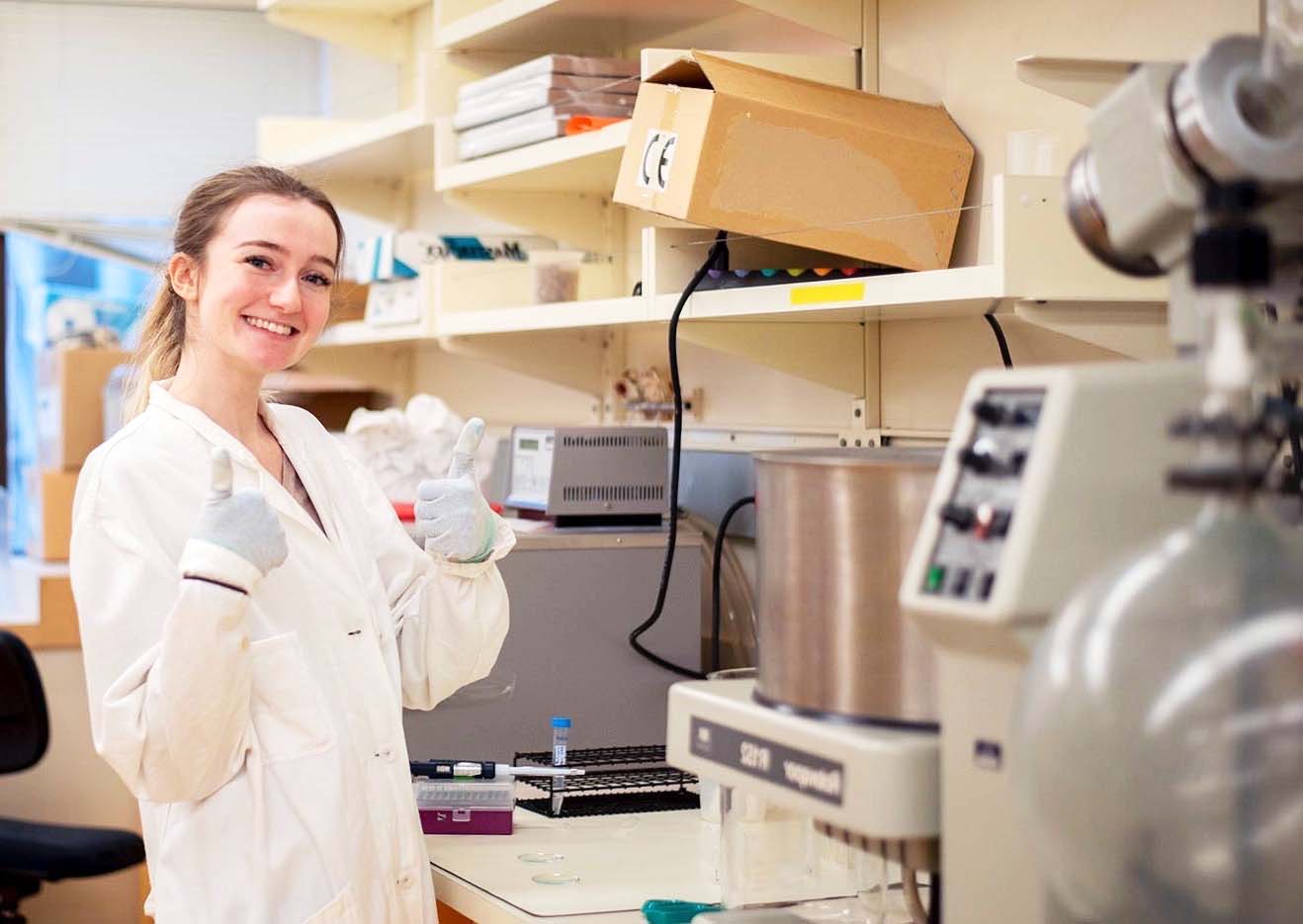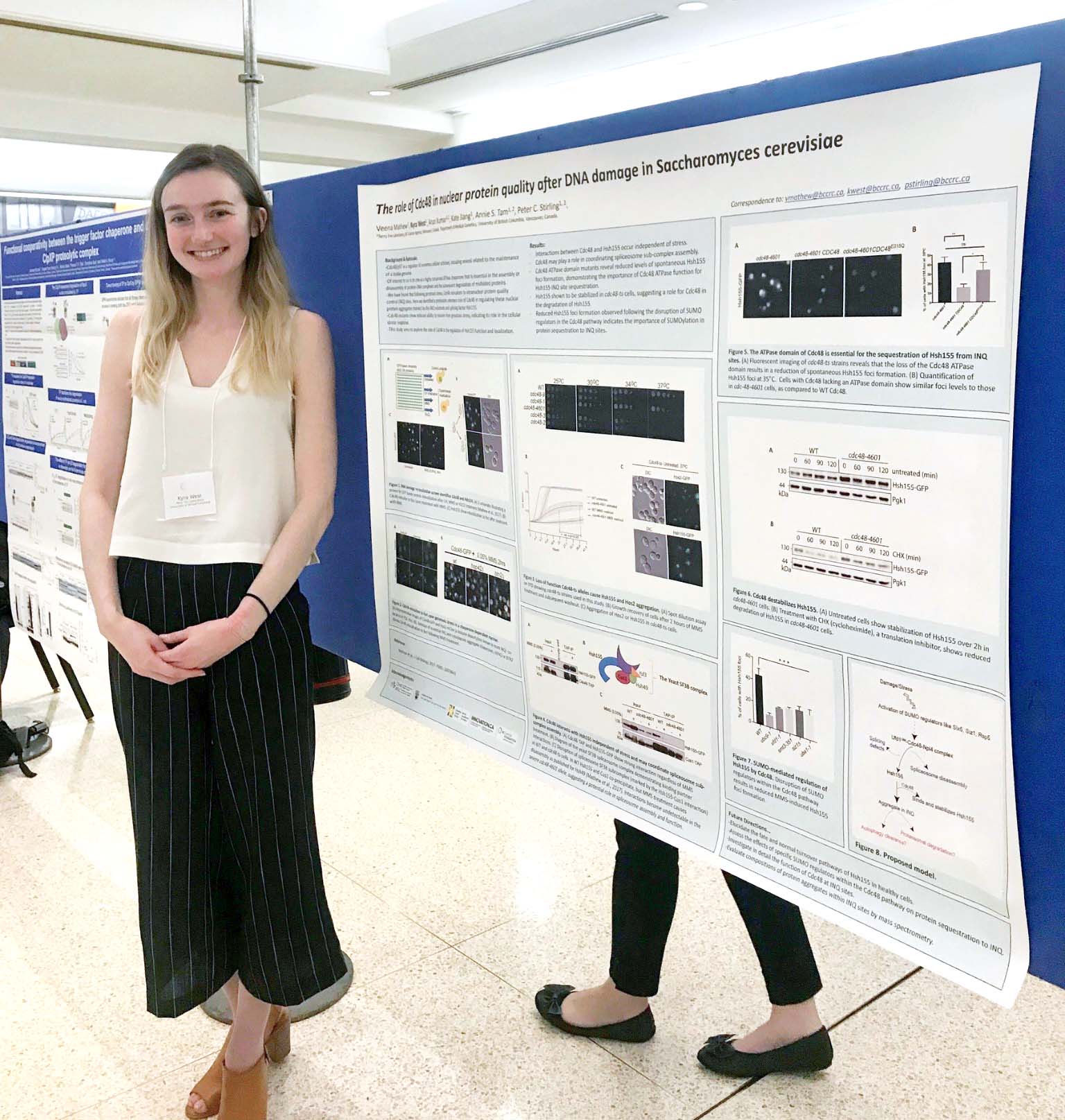Featured Student: Kyra West
August 3, 2023

August 3, 2023

My field is study is Microbiology and Immunology and I graduated in 2021.
I was interested in co-op, because it seemed like an excellent chance to gain real-world working experience in roles that would help me to find work after my degree.
I began my time with the program as a lab assistant, for an eight month placement, with the Stirling Lab at BC Cancer. There, I investigated DNA damage responses using a yeast model.
I also worked as a lab assistant for four months with the Withers Lab at UBC, where I screened gut microbiome samples for bacterial proteins that could convert A and B blood cells to universal donor O blood cells. I did my final work term as an “academic continuity rover,” for four months, with the UBC Faculty of Pharmaceutical Sciences, to help staff transition to online teaching and learning at the start of the pandemic.

Largely, it was the people that I met and worked with that made my work placements great.
I’m really grateful for the opportunity to work with so many supervisors and peers that were willing to teach me so much.
I was definitely proud of my time at Withers Lab.
While there, I isolated a new batch of microbial DNA and went through the process of setting up a microfluidic screening process. This was a huge project with tons of moving parts, including perfecting the parameters of a device that would create microfluidic reaction chambers for bacteria to produce enzymes in – essentially, very, very small drops of solution that each start off housing a single bacterial cell.
In addition, there were many other steps to the project, such as: creating a bacterial library that held fragments of the isolated DNA, screening it against blood antigen substrate, peering over a giant UV lamp, (in a lot of PPE,) to see if our screening even worked – and a million other things. It was a busy and rewarding four months.

My first co-op placement was also my first full-time job.
At first, the amount of information I needed to know or learn seemed really intimating, but I soon learned how important it was to keep detailed notes and organize them in a way that was easy to reference - a habit that I continue now at every job!
Like most students in the midst of their degrees, I knew there were so many possibilities for how I could continue my education or start a career.
It’s really overwhelming to try to pick the “right” path, not always knowing what it will look like when you start walking it!
My co-op terms actually helped me pivot to a new path – more than once – by giving me the opportunity to immerse myself in what life would be like beyond my bachelor’s degree.
I decided that while I really liked working in science, benchwork wasn’t for me. When I returned to my school terms, I shifted my course selection to be more supportive of working after my degree, instead of pursuing graduate studies in microbiology as I originally planned.
Co-op was a huge help for me, as finding work as a new grad can take time.
The co-op program taught me how to write a great resume/cover letter and interview well.
I also entered the workforce with the huge advantage of over a year of full-time work experience.
Don’t be afraid to pivot!
This is your chance to see where your passions lie and find out what works for you.

I graduated a couple of years back, so I can confirm there is lots to look forward to!
When I was on school terms, even in my free time, I thought about school work. I loved that while on my co-op terms, work stayed within working hours and my free time was truly mine. That continues when working after graduation.
I now work as a clinical research coordinator and really enjoy getting to contribute to science in a completely different way. I’m grateful to be here and am always excited to see where life takes me.
We honour xwməθkwəy̓ əm (Musqueam) on whose ancestral, unceded territory UBC Vancouver is situated. UBC Science is committed to building meaningful relationships with Indigenous peoples so we can advance Reconciliation and ensure traditional ways of knowing enrich our teaching and research.
Learn more: Musqueam First Nation